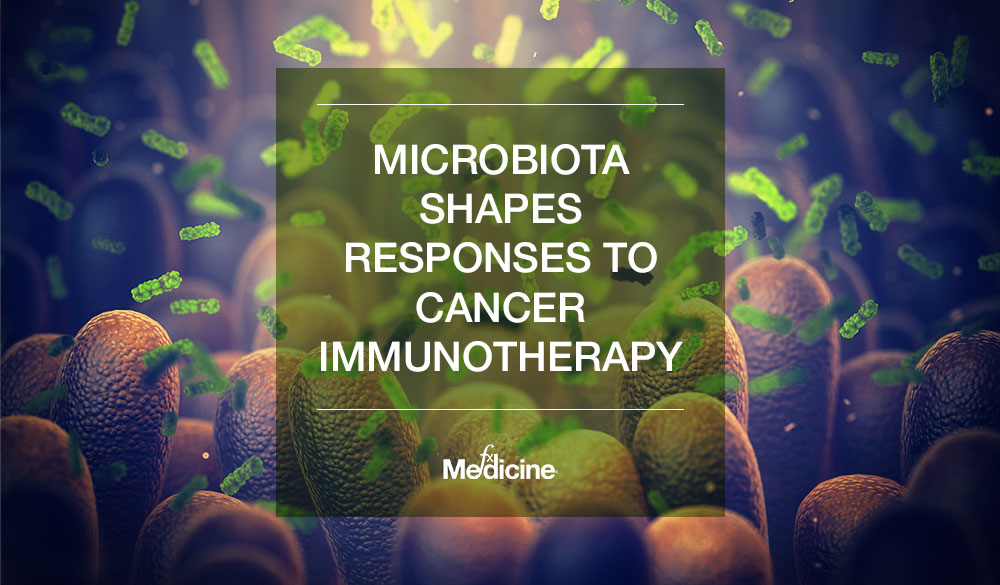Andrew Whitfield-Cook ● 2 min read
Research into our microbiota milieu is exploding, finding more and more interesting results in a diverse range of conditions from gut health to harvesting of calories and weight gain, pregnancy outcomes, mood levels and blood pressure.
Now researchers are finding that different gut microbes can even influence the way medicines work in our bodies. The problem is that it’s both good and bad news. But what all of the research points to is that we’d better look after our microbes.
Not only can microbes have a positive impact but they can inhibit the way cancer drugs work as well. Immunotherapies using monoclonal antibodies are the latest hero class of drugs that act by helping the body’s own immune system to target cancer cells.
Following on from earlier work,[1-3] two new studies[4,5] have shown that oral and gut microbes of melanoma patients having anti-PD-1 immunotherapy differed vastly between responders and non-responders to therapy. The non-responders had both less bacterial diversity and less Clostridiae genera, specifically low levels of Ruminococci species. Non-responders also had higher levels of bacteroidales.
Ruminococci, especially R. bromii, inhabit the human gut. Despite our non-ruminant evolution, they have become normal bacterial inhabitants and are thought to be critical players in digestion of resistant starches.
Resistant starches are thought to aid in reducing insulin resistance and protect against colon cancer by promoting short chain fatty acids and perhaps histamine production.
Another interesting point is that the 35-40% of the population who have bacterial populations that favour methane production may have a better chance of avoiding side-effects during the use of certain chemotherapy drugs.[6]
For now, the message is that gut microbes are a double-edged sword for cancer immunotherapy…so make sure your bugs are diverse, balanced and fed good doses of resistant starch!
References
- Pitt JM, Vétizou M, Waldschmitt N, et al. Fine-tuning cancer immunotherapy: optimizing the gut microbiome. Cancer Res 2016;76(16):4602-4607 [Full Text]
- Ze X, Duncan SH, Louis P, et al. Ruminococcus bromii is a keystone species for the degradation of resistant starch in the human colon. ISME J 2012;6(8):1535-1543 [Full Text]
- Botticelli A, Zizzari I, Mazzuca F, et al. Cross-talk between microbiota and immune fitness to steer and control response to anti PD-1/PDL-1 treatment. Oncotarget 2017;8(5):8890-8899 [Full Text]
- Gopalakrishnan V, Spencer CN, Nezi L, et al. Gut microbiome modulates response to anti–PD-1 immunotherapy in melanoma patients. Science 2017 [Abstract]
- Routy B, Le Chatelier E, Derosa L, et al. Gut microbiome influences efficacy of PD-1–based immunotherapy against epithelial tumors. Science 2017 [Abstract]
- Holma R, Korpela R, Sairanen U, et al. Colonic methane production modifies gastrointestinal toxicity associated with adjuvant 5-fluorouracil chemotherapy for colorectal cancer. J Clin Gastroenterol 2013;47(1):45-51 [Abstract]
DISCLAIMER:
The information provided on FX Medicine is for educational and informational purposes only. The information provided on this site is not, nor is it intended to be, a substitute for professional advice or care. Please seek the advice of a qualified health care professional in the event something you have read here raises questions or concerns regarding your health.



